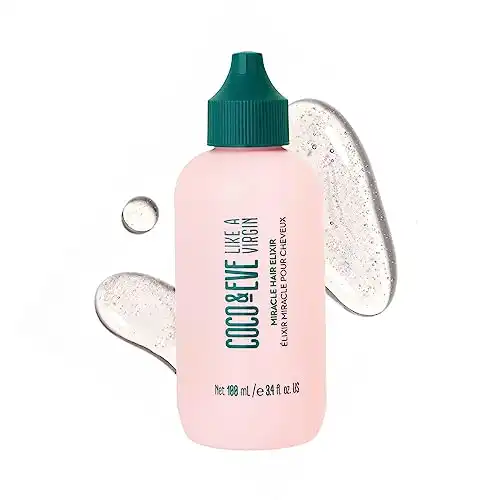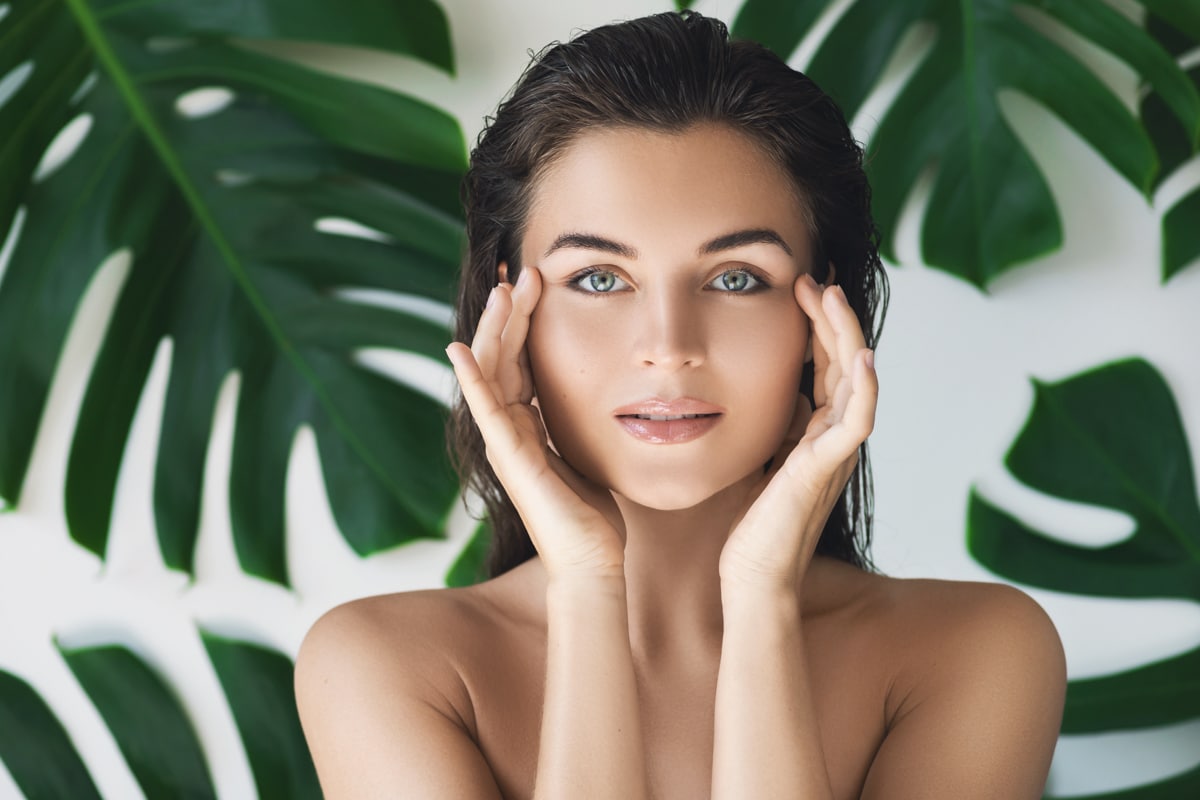You’ve probably heard about and the various products that speak of its moisture-retaining properties and how it’s a great way to hydrate your and promote . This is quite appealing to many people, of course.
A current TikTok trend has people showing how they use a facial on their . One user reported they saw and felt a major difference after only two weeks of nightly application. This particular video has millions of views and apparently inspired many others to post their own videos to report their own results after trying the product.
?
can absorb and hold onto water so it traps the moisture when applied to the or , making them softer. Thus, it could be effective for various types. People usually apply the acid to wet as it acts like a sponge and absorbs the water from it. It sounds great, right? What you often do not hear is it can have the opposite effect when applied to dry . is a large molecule and doesn’t always penetrate. So, it could soak the existing moisture from your and dry it out.
Dermatologists often hear questions about popular ingredients in beauty and products. So what is ? What are its properties? Can you use for ? What are the most effective ways of using it?

What’s ?
As we said above, not only retains moisture but can bind over a thousand times its weight in liquid. This acid is part of certain organs of the human body like the eyes, , and eyes. It’s also present in the synovial fluid of the joints. The type of used in cosmetics is usually made in a lab via bio-fermentation, a bacterial process.
The production of , , elastin, and other key substances decreases as we age. This is the reason why the loses volume and moisture. Some doctors also prescribe it to people with arthritis as a joint pain reliever and wounds healer. Taking supplements or using cosmetic products that contain it may improve hydration and reduce signs of . So, it makes sense to use it with the intention to promote health and fight signs of .
What Does the Research On Reveal?
Research reveals that can be effective in various applications. Various studies explored its effects on and found that these vary from person to person and depend on other factors that influence the , such as nutrition, climate, genetics, and substance abuse.
A 2017 study examined the anti- effects of supplements in sixty healthy adults. The researchers divided them into two groups and randomly assigned them a treatment or a placebo. The of those in the group who used the real thing improved in comparison to those who used the placebo. It’s noteworthy to mention that not only the sample of this study was too small but it received funding from a company that produces supplements. Facts that probably didn’t influence the results, right?
Another small study found that may improve and reduce roughness in as little as 2-8 weeks while researchers in a 2016 German one compared the anti- effects of four different face creams containing . They recorded an increase in tightness and a reduction in wrinkle depth in the 20 participants.
As you can imagine, most cosmetic brands that produce these elixirs claim they can reverse . In reality, most of these products contain molecules and these are too large to pass through the outer layer of .

What Are the Most Effective Ways of Using ?
One of the best applications for this kind of acid is to heal wounds by promoting hydration. According to a 2016 review article, it speeds up the process by decreasing inflammation and redirecting blood vessels to damaged areas. The researchers noticed that helps diabetic foot ulcers heal faster than the standard wound dressing materials.
In addition, the researchers in a 2019 animal study applied a biodegradable gel containing and poloxamer to wounds. It prevented bacterial infections and moisturized the wound and promoted healing as a consequence.
Furthermore, the synovial fluid that lubricates and cushions the joints contains and naturally relieves joint pain. It breaks down as people age and the joints become stiff and painful so some physicians prescribe hyaluronic injections to treat osteoarthritis. (insert link: according to the Arthritis Foundation) However, the guidelines from the American College of Rheumatology and the Arthritis Foundation advise people against it. This is because there’s not enough evidence to prove its use is safe or effective.
Are There Any Side Effects?
In general, most products containing seem to be safe if you follow the instructions on how to use them. However, there could be allergic reactions and adverse side effects in some people so always do a test patch before you start using a new product. Furthermore, people who receive injections containing this acid could experience pain, redness, itching, swelling, or bruising. It’s possible for these side effects to be the result of the injection process rather than the solution, though.
Of course, you must always consult your doctor about any interactions of with your prescription medications or if you have a chronic health condition. This substance seldom causes severe side effects or allergic reactions as it’s naturally occurring in the human body. However, those with a history of severe allergic reactions should be cautious when using it. In addition, we don’t know much about its effects on pregnant or lactating women so they may want to avoid taking these supplements.

Containing Cosmetics
Many cosmetics containing claim to increase hydration but this is only partially true. It depends on the kind of product as this acid has varying molecular sizes. For instance, the larger ones can bind to water and hold it but cannot penetrate the . Thus, they merely sit on top of the when applied topically and the hydration only happens at the surface. In turn, the smaller molecules bind less water than the larger ones but can penetrate deeper into the epidermis. So, stick to a product with varying sizes of molecules for maximum surface hydration.
There’s such a thing as that contain ; they’re usually available in an injectable gel form. These add volume by drawing water and by literally filling the area where they’re applied. People use these fillers to address all kinds of cosmetic concerns like softening folds and lifting the cheeks. They also diminish the creases around the mouth and chin and improve sunken, undereye circles. You can also use them to maintain your lips hydrated and enhance the appearance of your hands and earlobes.
Can Prevent or Reverse ?
Ok, so now you know more about the topical applications of . Do you think it’s worth the hype? Well, let’s be clear that topical applications won’t ever be as effective as the injectable form of this acid. Especially when it comes to replacing lost volume. Be aware that some manufacturers market these topical products as topical “fillers.” They’re excellent moisturizers, no doubt, but if you seek to improve the volume of your then stick to the injectable form.
The topical form of has good attributes as it doesn’t cause allergic reactions and it’s safe to use for the most part. It’s particularly great if you have , especially during the cooler months. Do keep in mind that it only hydrates you on the surface.
Let’s now proceed to evaluate a couple of products containing for that came to our attention.

Products Containing for
by NOAH
NOAH Yal Filler
This product claims to be anti-frizz and repair , especially if you’re experiencing or have severely damaged . According to them, the difference between good and bad is as simple as using the right .
The product is apparently organic and vegan and contains organic konjac, a root vegetable that grows in some parts of Asia and is rich in proteins, lipids, fatty acids, vitamins, and minerals. All ingredients used in its production are supposed to be hand-picked and cruelty-free sourced. Its overall composition is supposed to be sulfate, paraben, paraffin, mineral oils, diethanolamine,cruelty-free, and Sodium lauryl sulfate-free.
The full list of ingredients of this filler treatment with , specific for is Cyclopentasiloxane, Dimethiconol, sodium hyaluronate, Parfum [fragrance], Ethylhexyl palmitate, Trihydroxystearin, Amorphophallus konjac root powder.
A reviewer of this product on Amazon indicates the product does contain at least two silicone and petroleum ingredients, so it isn’t “organic.”
Another of them is quite disappointed because the product isn’t “100% natural.” He adds that Dimethiconol belongs to the family of silicones, organic derivatives of silicon, characterized by the presence of an oxygen-silicon bond, a stable and chemically inert bond. They’re photostable, colorless, and odorless substances. In particular, Dimethiconol is a silicone rubber while Cyclopentasiloxane is safe in cosmetic products, except in styling products and spray solar products.
A third review indicated they got it thinking it’ll be a quick fix for their recently damaged but quickly learned it isn’t worth the hype or money, even though it works.
by Coco & Eve
Coco & Eve Miracle Elixir
This coconut oil with leave-in conditioner is marketed as a treatment for dry damaged , and frizz control that also protects from heat styling.
The claim is this elixir revitalizes and restores dry frizzy as the coconut oil in it infuses softness, shine and gloss with a lightweight, non-greasy, silky finish. It also treats split-ends by boosting hydration, and smoothing “the feistiest of frizz.” One must rub a few drops of it on the ends before bedtime and can also use it as a pre-styling treatment by applying a few drops on to protect it from heat up to 428°F and for a healthy shine. You can also finish your look by using it as a styling to sleek, smooth, twist, or scrunch your and have a silky finish.
According to the claims, the formulation is a unique blend of Balinese fruits like mangosteen, papaya, prickly pear, and virgin coconut oil plus . The logic behind it is that coconut oil is “one of the world’s richest sources of fatty acids to recover from within and seal split ends, whilst will moisturize deep into the without any residue.”
They’re proud to offer a 100% vegan, cruelty-free product. Their list of ingredients: Cyclopentasiloxane, Dimethiconol, C15-19 Alkane, Cocos Nucifera (Coconut) Oil/Cocos Nucifera Oil, Parfum/Fragrance/Perfume, Opuntia Ficus-Indica Extract, Carica Papaya (Papaya) Seed Oil/Carica Papaya Seed Oil, Ficus Carica (Fig) Fruit Extract / Ficus Carica Fruit Extract, Carthamus Tinctorius (Safflower) Seed Oil/Carthamus Tinctorius Seed Oil, Citrus Medica Limonum (Lemon) Peel Extract/ Citrus Limon (Lemon) Peel Extract/ Citrus Limon Peel Extract, Garcinia Mangostana Fruit Extract, C10-18 Triglycerides, Sodium Hyaluronate, Triolein, Tocopheryl Acetate, Glyceryl Dioleate, Benzyl Salicylate, Linalool, Coumarin, Limonene, Hexyl Cinnamal.
The product is well-rated on Amazon, 4.5 stars, and there’s a consensus in regard to how much they like the scent and how silky it is as well as how much it decreases frizz. However, some of them dislike the fact that it does contain silicones, so it isn’t “100% natural.”
The Process of
is a process of natural change that begins immediately after you’re born and while you begin to acquire many of your functions all the way to your thirties, many body functions begin to decline when you reach middle age.
People get old at different ages although 65 is officially the beginning of “old age” as we understand it. This is an arbitrary number and has nothing to do with biology, only with history. It began when Germans, the first people to establish a retirement program, chose the age of 65 as the age for their retirement. Other developed societies followed suit and it’s now the retirement age in many countries.
When Does a Person Become Old?
There are various types of ages: chronologic, biologic, and psychologic.
Chronologic age is solely based on the passage of time and has limited significance in terms of health, even though the likelihood of a health problem increases as you age. However, let’s be clear that health problems, not normal , are the main cause of functional loss during old age.
Biologic age is about body changes that affect some people but not others. Thus, some of us may be old at 65 while others won’t be until they’re 75. This is more the result of the type of lifestyle you led as well as your past and present habits.
Finally, the psychological age is more about your state of mind, and how you act and feel. There are many youthful 80-year-olds who are still fun and active so they’re psychologically young.
Normal
People age differently and most changes are due to normal internal processes that occur in everyone who reaches an old age These changes are expected and unavoidable. For example, decreases, and the lens of the eye stiffens and thickens. Thus, it becomes harder to focus on close objects. This change is part of normal and happens to everyone who gets older.
What exactly constitutes normal is still a subject of much debate but the changes that occur make it more likely to develop certain disorders. Still, you can take some actions to compensate for these changes. For instance, you’ll probably lose some of your teeth as you age but you can counteract it by visiting the dentist regularly and by brushing and flossing regularly.
Depending on your , you might want to change your routine and replenish your with . It also does wonders for the in your hands as it evens your . People with should do a patch test to be sure they’re not allergic to it.
Healthy
This refers to slowing down the undesired effects of , both physically and mentally. You want to live in a way that you can prevent illness and remain active and independent. Indeed, it’s harder to maintain your general good health as you age but some healthy habits can greatly contribute to it. Adopt a wholesome, well-balanced, nutritious diet that includes , be physically active (a daily 30-minute walk is all you need), develop, and stay mentally active. The sooner you develop these habits, the better you’ll age, and remember, it’s never too late to begin.
Finally, is a naturally occurring substance that helps retain moisture in the and eyes and lubricates the joints. It also plays a crucial role in wound healing by controlling inflammation and redirecting blood flow to damaged tissue. The effects of any , be it a cosmetic or a medical product, vary from one person to another. So, always consult your doctor before using an anti-aging containing this substance.






